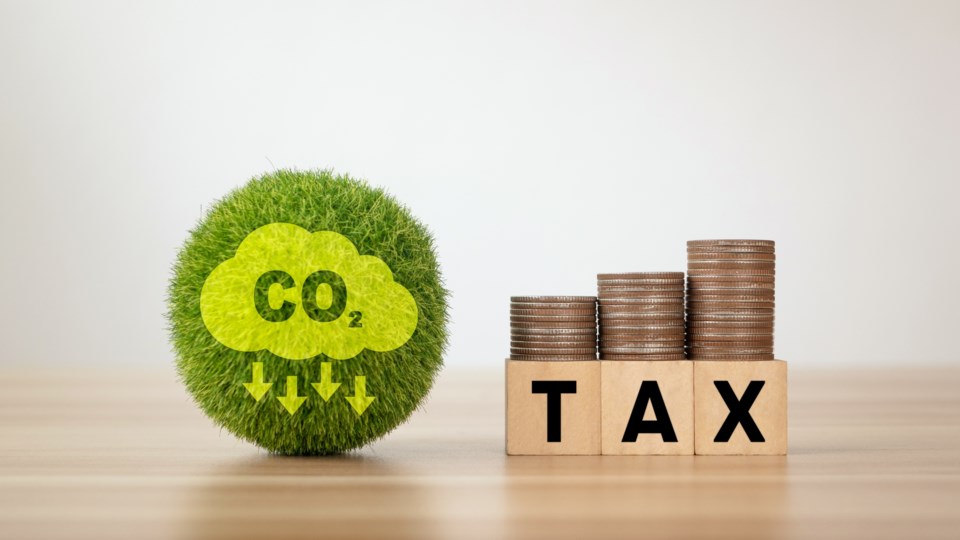OrilliaMatters welcomes letters to the editor at [email protected]. Please include your daytime phone number and address (for verification of authorship, not publication). The following letter is in response to an opinion column Carbon tax is working, not to blame for inflation, published May 5.
No, Mr. Larsen, Canadians are not better off because of Trudeau's carbon tax.
The federal carbon tax has boosted inflation by nearly half-a-percentage point, says Bank of Canada Governor Tiff Macklem. That calculation did not take into consideration a number of factors affecting prices. It also didn't take into consideration the GST that is applied to the carbon tax which also produces a $500 million a year windfall for the Trudeau regime.
Currently, the carbon tax works out to about 14 cents per litre of gasoline and 17 cents per litre of diesel. In winter months, two-thirds of our fruits and vegetables in Canada are imported, and so have greater trucking distances or a little more fuel intensity.
Agriculture uses a lot of fuel. It also consumes a lot of electricity that is derived from natural gas in many parts of Canada. These are major expenses for farmers that are passed along to food processors and finally consumers.
Dr. David Broadstock, a senior research fellow and head of the energy economics division at the National University of Singapore's (NUS) Energy Research Institute says that even with rebates a broad based carbon tax adds $4 per month to utility bills for every $25 in carbon tax. That means when it reaches $170/tonne Canadians who are reliant in natural gas for heat and electricity can expect their monthly utility bills to rise by almost $28 per month even after rebates.
Parliamentary Budget Officer Yves Giroux has also debunked the myth that Trudeau keeps repeating that Canadians are getting back more than what they pay into the carbon tax. I know for my family with two jobs and two vehicles, it doesn't even come close. On the prairies most families like mine paid $507 more in 2023 into the carbon tax than what we received. That figure will rise to $2,773 by 2030.
Not only is the carbon tax making life unaffordable for Canadians, it doesn't do what it was supposed to do and that is reduce emissions. Contrary to what the Liberals previously predicted, the latest data shows Canada's emissions rose again in 2022 (federal reporting is always two years after the fact) to 708 million tonnes, up from 698 million tonnes in 2021 which was up from 686 million tonnes in 2020.
This means Canada is moving further away from Trudeau's target of reducing emissions to at least 40% below 2005 levels by 2030.
Cutting emissions was the reason Trudeau said he introduced his federal carbon tax in 2019, which increases the cost of almost all goods and services because almost all of them consume fossil fuel energy.
Canadians don't like being charged more for everything. Particularly when the reason they were given for the added inflation is not doing what it was supposed to do.
I liked Mr. Larsen as my English teacher, but he is out of step with Canadians on this issue. We don't want Trudeau's carbon tax and we will remind him of that in next year's election.
Tim Szukalski
Edmonton


